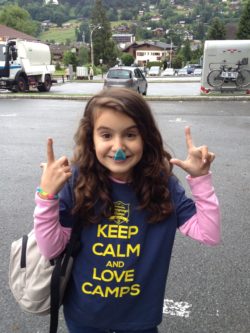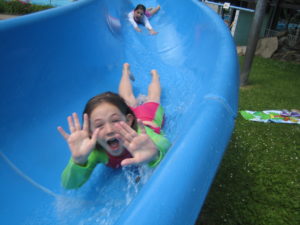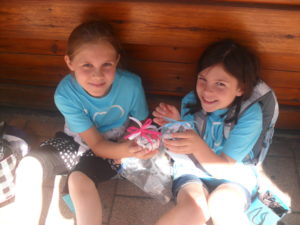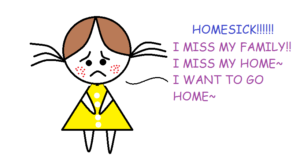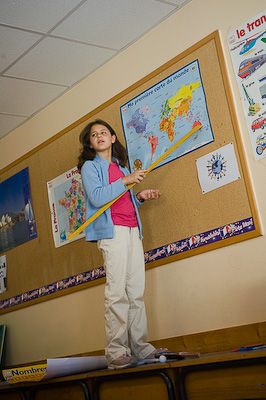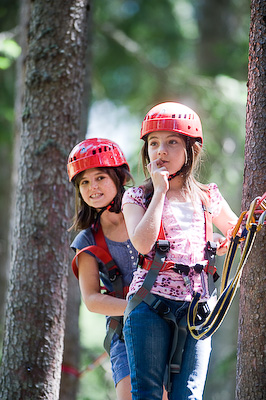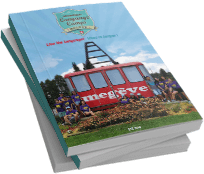Tag: french summer camp
Language Summer Camp in Megève: 4 Convincing Reasons to Send Your Child
Introduction
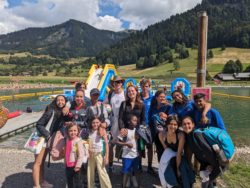
Reason 1: Immersive Language Learning Experience
One of the most effective methods for learning a new language is through immersion, and that’s exactly what our Megève summer camp offers. Immersion in a language occurs when learners are placed in an environment where they must use the new language to communicate for most of their day. This method accelerates language acquisition as it mimics the natural way children learn their mother tongue.
Our camp curriculum is designed by expert linguists and seasoned educators, ensuring that each child receives personalized attention suited to their learning pace. Whether your child is a beginner or looking to enhance their fluency, the diverse linguistic setting at Megève provides an ideal backdrop. From interactive language classes in the morning to practical conversational practice with peers throughout the day, the exposure is continuous and multifaceted.
Further enriching this experience are the stories from former campers who recount their rapid progress and increased confidence in using the new language. Such testimonials underscore the effectiveness of our immersive approach.
 Reason 2: Unique Cultural Exposure
Reason 2: Unique Cultural Exposure
Nestled in the French Alps, Megève is a hub of rich cultural heritage. Our summer camp leverages this unique location to provide children with firsthand experience of French culture. Cultural learning is intertwined with language instruction, with scheduled trips to local museums, historical sites, and participation in traditional festivals and markets.
These activities are not only entertaining but also educational, providing children with context to the language they are learning. This method of cultural immersion ensures that language learning at the Megève camp is not confined to textbooks but enriched with real-world experiences and interactions.
Reason 3: Development of Life-Long Skills
Beyond the linguistic benefits, our french summer camp in Megève is a breeding ground for a variety of life-long skills that are essential in today’s world. Campers develop independence as they navigate new experiences away from home, learn to manage their time and responsibilities, and make decisions in a supportive yet challenging environment.
Social skills are particularly enhanced through daily interactions and group activities. Children learn to communicate across language barriers, work in teams, and build friendships with peers from around the world, fostering a global mindset. Additionally, the camp’s diverse activities encourage adaptability and problem-solving, skills that are valuable in academic and personal settings.
Educators and psychologists support the notion that such immersive environments significantly contribute to overall child development. Engaging in a structured yet flexible schedule allows children to explore their interests in a safe setting, promoting personal growth and self-confidence.
 Reason 4: Fun and Safe Environment
Reason 4: Fun and Safe Environment
While the educational benefits are paramount, the enjoyment of the campers is equally important to us. Megève’s summer camp is designed to be the perfect blend of learning and fun. Our schedule includes a variety of recreational activities such as hiking, swimming, and arts and crafts, ensuring that every child finds something they enjoy. These activities not only serve as a break from learning but also help in applying the language in relaxed settings, making language practice enjoyable and stress-free.
Safety is our top priority. The camp is staffed by professionals who are trained to provide a secure and supportive environment for all children. Comprehensive safety protocols are in place, including 24/7 on-site medical support and regular updates to parents, ensuring peace of mind for families while their children enjoy their summer adventure.
Parents of previous camp attendees frequently express their satisfaction with the secure and nurturing environment at the camp, noting that their children are eager to return year after year. Their testimonials highlight the camp’s success in combining effective learning with a fun and safe summer experience.
Conclusion
Sending your child to our language summer camp in Megève is not just an investment in their language skills, but in their personal growth and future potential. The immersive language learning, coupled with cultural exposure, development of life-long skills, and a fun, safe environment, makes Megève an ideal choice for a summer that’s both enriching and enjoyable. The experiences and skills gained at the camp will serve your child well beyond the summer, laying a foundation for success in whatever path they choose to pursue.
A Summer Camp that foster independence
Unlocking Independence: The Transformative Journey at International Language Camp
At “International Language Camp” in the picturesque town of Megève, nestled in the heart of the French Alps, a remarkable journey of independence awaits young campers. This unique summer camp experience not only offers the opportunity to learn and master languages but also fosters personal growth, self-reliance, and the development of essential life skills.
A Multicultural Melting Pot
One of the standout features of International Language Camp is its diverse and inclusive environment. Children from across the globe come together, creating a rich tapestry of cultures and backgrounds. This multicultural setting exposes campers to a world of perspectives, encouraging them to step out of their comfort zones and embrace the unfamiliar.
Freedom to Explore
At International Language Camps, children are encouraged to explore their interests and passions. They have the freedom to choose from a wide range of activities, allowing them to follow their curiosity and discover new talents. This freedom of choice empowers campers to make decisions independently and take ownership of their experiences.
Adventures Beyond Comfort Zones
The camp offers a multitude of outdoor adventures, from hiking in the breathtaking Alpine landscapes to engaging in thrilling water sports. These activities push campers to step out of their comfort zones, overcome challenges, and gain confidence in their abilities. Conquering new terrains fosters a sense of self-reliance that stays with them long after camp ends.
Language Learning as a Catalyst
Language acquisition is at the core of International Language Camp’s mission. Campers not only learn to communicate effectively in French or English but also develop the confidence to use these languages in real-world scenarios. This linguistic competence further enhances their independence, as they can navigate global environments with ease.
Cultural Exchange and Empathy
Interacting with peers from different backgrounds encourages campers to develop empathy and respect for diverse perspectives. They learn to appreciate the value of collaboration and cooperation, skills that are crucial for both personal and professional growth.
Life Skills for the Future
The independence gained at International Language Camps extends beyond the campfire. Campers return home equipped with enhanced decision-making skills, self-motivation, and the courage to explore the world. These attributes prepare them to navigate the complexities of adulthood with confidence.
In conclusion, International Language Camps in Megève is not merely a language program but a transformative journey towards independence. Campers emerge from this enriching experience with a newfound sense of self, a broader worldview, and the life skills necessary to thrive in an ever-changing world. Join us at International Language Camp, where independence is more than a concept; it’s a way of life.
Preparing Your Child for an Unforgettable Summer Camp: A Complete Guide
Preparing Your Child for an Unforgettable Summer Camp: A Complete Guide
Introduction:
Summer camps offer children an extraordinary experience, allowing them to thrive, make new friends, and explore exciting activities. However, to ensure your child fully enjoys this experience, proper preparation is crucial. In this article, we provide a comprehensive guide on how to prepare your child for a summer camp. Follow these tips to ensure your child has a memorable vacation!
I. Choosing the Right Summer Camp:
Before diving into the preparation process, it is essential to select the most suitable summer camp for your child. Consider the following criteria during your search:
– Location: Choose a camp that is conveniently located, whether near your home or in a specific environment such as the mountains or the beach.
– Duration: Select a camp duration that aligns with your child’s age and needs. Camps can range from a few days to several weeks.
– Themes and Activities: Research the camp’s themes and activities. Opt for those that match your child’s interests and passions.
II. Mentally Preparing Your Child:
Attending a summer camp can be an exciting yet anxiety-inducing experience for some children. Here’s how you can help mentally prepare your child:
– Engage in Conversations: Initiate discussions about the summer camp, explaining the activities and opportunities available. Address any questions or concerns your child may have.
– Foster Independence: Encourage your child to develop independence skills before departure. Foster decision-making, self-reliance, and problem-solving abilities.
– Visit the Camp’s Website: Show your child photos and testimonials from past campers on the camp’s website. This will give them a glimpse of what to expect.
III. Packing Your Child’s Essentials:
Properly packing your child’s belongings is vital for a comfortable stay at summer camp. Consider the following checklist of essential items:
– Clothing: Pack an ample supply of comfortable clothes suitable for camp activities. Don’t forget to include underwear, socks, swimwear, and rain gear.
– Equipment: Depending on the offered activities, ensure your child has specific equipment such as hiking shoes, tennis rackets, or a pair of binoculars.
– Toiletries: Remember to provide your child with necessary toiletries, including a toothbrush, toothpaste, shampoo, soap, and sunscreen.
IV. Health and Safety Considerations:
The well-being of your child during their summer camp experience is of utmost importance. Take the following health and safety measures:
– Medical Information: Provide the camp staff with any relevant medical information, including allergies, medications, and emergency contact details.
– Vaccinations: Ensure your child is up-to-date with their vaccinations as required by the camp and consult their pediatrician if necessary.
– First Aid Kit: Pack a small first aid kit with basic supplies such as band-aids, antiseptic cream, and pain relievers.
V. Emotional Support and Communication:
During your child’s time at summer camp, maintaining emotional support and open communication is essential. Consider the following:
– Letters and Care Packages: Send letters or care packages to your child during their camp stay to show your love and support.
– Camp Communication Policy: Familiarize yourself with the camp’s communication policy and guidelines for contacting your child, ensuring you respect the camp’s rules.
– Trust the Camp Staff: Develop trust in the camp’s staff and their ability to take care of your child. Reach out to them if you have any concerns or questions.
Conclusion:
Preparing your child for a summer camp adventure requires careful consideration and planning. By selecting the right camp, mentally preparing your child, packing their essentials, prioritizing health and safety, and maintaining communication, you can ensure they have an unforgettable and enriching experience
The 14 most asked questions about camps
1. What is camp?
Camp, as a concept, can be a very difficult thing to define.
Each camp is developed to provide a unique experience for children and teens of different backgrounds, skill sets and interests. They offer new experiences, activities, and friendships, and promote personal development.
Fun is part of it, as is challenge. Some of the challenges are physical, others social. While camp is strongly associated with the summer season—something that is due to the fact that the camp concept began as a summer program for young people—today’s camp sessions are offered throughout the course of the year. You can have a look at our winter camps!
What the best camps share is their ability to provide opportunities for kids to grow around a set of common interests and abilities, and to gain a sense of their talents within a setting of shared values. Peer mentorship often takes a front seat in the camp experience, with young people working to gain the trust of others. Success is not exclusively personal, but also social. It is less about “I did it!” and more about “we did it!”
Whether it is a day camp or an overnight camp, it is an opportunity for kids to explore being active in creative ways that appeal to who they are and in ways that are kid-driven, rather than adult-driven. They provide stimulating, purposeful play while encouraging creativity and social engagement. When at camp, kids learn to set their own boundaries, to develop in an environment that is not necessarily focused on a competitive end, to interact with one another, and to be involved in an active way with their peers.
2. Is summer camp worth the investment?
Camp offers adventure, personal growth challenges, and social opportunities that belie any dollar figure attached to the experience. Many campers do not appreciate the true value of camp until some point in the future when a lesson in decisiveness, grit, or persistence becomes truly apparent. For others, camp presents experiences, and affords personal revelations that are immediately invaluable. The stories of camp alumni’s enthusiasm implies that yes, it is worth it, and no, you can’t put a price on what you gain.
Take a fuller look at how summer camp is worth it
3. What’s So Great About Camp?
We have a lot of testimonials of old campers who say that they met their best friends for life in summer camps because when you are at camp, you meet people who get to know you better than anyone from school, and you build strong relationships with the people who make you the happiest. The amazing thing about camp is that the people and the environment really open you up to be who you are and make you feel accepted and loved for it. Leaving camp always comes with a lot of tears because it has such an amazing impact on people.
4. How Long Does Summer Camp Last?
Most of the campers enrol for 2-3 weeks. Some parents prefer a week or two, specially for the younger campers. For older campers, parents choose longer sessions up to a 5 week program. But, again, it is a good question, one that you should think about whenever considering a program: how long are the sessions?
5. What’s the Difference Between Day and Overnight?
At overnight camps, kids arrive and stay on site, in groups of similar age, each presided over by counsellors who live with them. They may experience homesickness, though, even then, the counsellors know how to support the child, and by the end of the session, they will have a sense of having tackled even that challenge successfully.
At day camps, campers only attend during the day: they arrive in the morning and go home at night. Day campers are able to focus more intensively on a specific passion along with peers who share that passion, mentored by counsellors who are experts in their respective fields.
6. What do Specialty Camps Offer?
All great camps share those attributes: getting kids out of their comfort zones, placing them in settings in which their personal interests and talents are valued.
We believe sincerely in the educational, social and recreational values of each camp.Our programs are specialised in languages and sports. Children come from all over the world to learn French or English and practise different sports .
7. How do I know if my child is ready for overnight camp?
We accept kids at six years of age, though not all children are ready at that age to spend a week or more away from home and family.
There are factors to consider when deciding if your child is ready for the overnight experience.
The comfort with the concept. Is your child comfortable having sleepovers? You can set up sleepovers and see how the child reacts. If your child is still nervous or uncomfortable with the prospect of spending the night away from home, overnight camp probably isn’t in the cards just yet.
And then, factor is: does your child want to go? Gauge their interest in the various options, and let them get a feel for what this particular camp is all about. If kids are involved in the process, and are excited at what they will be doing at camp, they’ll be much more comfortable when they get there.
And, yes, parents tend to be overly cautious. Most children are much more ready to go to camp than their parents are to let them go. Kids are typically ready for day or overnight camp when they start to get involved in activities outside the home—playing hockey or basketball, or starting to generate interests away from the family.
8.Is Camp Safe?
A US national study conducted at camps showed that rates of injury through camp experience were significantly lower than those of most organized sports.
Addressing everything from physical safety to emotional well-being, a good director is committed to ensuring each child has a positive camp experience. These days there is a greater focus on anxiety and nervousness. Open communication is often the best solution, and it starts by letting parents and campers know exactly what to expect, as every camp director does. Any concern that’s top of mind for parents is also top of mind for camp directors.Camps conduct criminal record checks for all new staff members.
When our kids take part in canoeing, kayaking, climbing, or swimming, they’re supervised by staff who are certified in those areas.
Further, camps are required to have strict, well-enforced policies around food cleanliness and safety, allergies and dietary needs, water purification, camper health and wellness, medical services, and program safety.
Peace of mind should be part of the overall camp experience as well, and if you don’t have it, then feel free to approach the camp staff or administration. Truly, they’ll be happy you asked.
Camps, as with any professional environment, have a typical and clear administrative hierarchy. At the top are the camp directors, who are people for whom camping is both a full-time career as well as a personal passion. Most directors have extensive experience at camp, having grown up through the camp experience themselves. Many have academic credentials. Others have a background in outdoor recreation.
As with principals within a school environment, directors set the tone at camp. Everything that happens on the camp property is their responsibility. Their prime concern is the safety, health, and happiness of the campers. Before delegating this responsibility, they must hire mature, experienced, skilled, and competent individuals and then train them fully in all aspects of safety and risk management. Throughout the season, they support, supervise, and evaluate staff to ensure the well-being of every individual on the camp property.
9. Will the proposed activities really be useful to them?
In all camps, traditional or innovative, activities/events/ facilities don’t exist for themselves, or even necessarily to promote the skill sets they seem to represent. Isn’t looking forward to a career in making friendship bracelets. Even the sports, at least outside of specialty camps, aren’t conducted with the elite athlete in mind. Instead, as camp directors will tell you, the programming is a tool used to get to the hearts and minds of the kids, to help them to grow together, develop, and gain confidence in who they are and what they can do. From public speaking programs to sailing the high seas on a tall ship, it’s not the activity so much as what is done with it and what it is employed to accomplish. Foremost is to give young people a place where they can share their passions and knowledge, where they will feel a unique sense of belonging. Once they acclimate and get used to the idea.
10. How Do I Make Friends at Camp?
 It is a common question that is not voiced as often as it’s felt. Going to camp for the first time can require a bit of courage, and kids can be anxious about an upcoming camp experience. If a young person were to ask, this is what we’d say:
It is a common question that is not voiced as often as it’s felt. Going to camp for the first time can require a bit of courage, and kids can be anxious about an upcoming camp experience. If a young person were to ask, this is what we’d say:
- Everyone is in the same boat. The other campers are as anxious about fitting in as you are.
- say hi. Everyone has a bit of trouble putting themselves out there. If you say hi, whoever you say it to will be very happy you did.
- be yourself. Yes, this is what everyone says. But they say it because it’s true. Just be who you are, rather than trying to be what you think other people are looking for. They want to know you, and to know that you’re interested in knowing them.
- listen as much as you talk. Put yourself forward, but then let other people put themselves forward, too.
- go with the flow. There are lots of new experiences. Give everything a try. If you don’t like it, well, then you’ll know.
- have fun. Know that as difficult or strange as the first day might be, you are actually going to have fun. You’ll probably even cry when camp ends.
11. What’s A Typical Day at Camp Like?
The morning is dedicated to the language lessons and some games between the work times. In the afternoon, we organise a lot of activities such swimming , a big game, ice skating and many others. The list can be very long! After this fun time, campers do some others little activities, maybe an extra activity that you had taken for your child. It can be a tennis lesson or an individual language lesson (we teach 10 different languages). Lunch is at the restaurant, and they really appreciate to be served delicious french cuisine. Evening parties are organised by counsellors or professionals.
12. How Do I Register?
These days the registration process is quite simple. You can register and pay online. Keep in mind the registration timeline, though. You can register right up until the time camp starts but since some camps fill up fast, you’ll want to stay on top of things.
The cost of an overnight camp session is higher than a day camp session of similar duration, given the costs associated with accommodation and meals.
Our camp fees include:
- Access to the camp’s facilities
- Accommodation
- Supervision by trained staff members
There may be extra services, which are not included in the price:
- Optional programs and activities
- Supplies
- Equipment
- Camp merchandise, clothes, and snacks, which may be available at tuck shops
13. What Should I Be Asking The Camp Director?
You should absolutely approach the camp director, if only because they are great people, and any interaction will be welcome and illuminating. No question is foolish or too direct when you are dealing with the well-being and safety of your child.
What are your qualifications and experience?
Without exception, you’ll be impressed by the experience that they bring to the role. That said, pay as much attention to how they respond as to what they say. This is the person you will need to trust most with the care of your child. They should present themselves with confidence, professionalism, and empathy. Most do that and more.
What written policies are practised at camp to ensure camper safety?
In pre-camp training, staff learn the written safety guidelines for every activity and program and practise the emergency procedures for fire, waterfront emergency, severe weather, or a missing camper.
What will you do on the first day to make my child feel like they have an important place at camp?
Those first moments are crucial to a camper’s enjoyment of camp. The best case is one in which campers begin immediately: playing games and learning each other’s names.
What do you love about your camp?
Whatever camp directors say should match with your values as a family. Their experience and enthusiasm for working with young people should shine as well. If not, keep looking.
Signs Your child is Ready for Overnight Camp in a summer camp
Five Reasons Great Parents Send Their Kids to Camp
My shy, quiet nine-year-old went to camp not knowing a soul. Two weeks later, she came home transformed. She blossomed. She made friends, learned a multitude of activities, felt safe, loved, confident, and happy — really, really happy. As hard as it was on me, it was all worth it for her. It was the single best thing I have ever done for her.
-First-time camp parent
Many parents won’t allow their child to go on a school field trip or school outdoor education trip unless they are chaperoning, so it’s no surprise that those same parents may find the idea of sending their child to sleep-away camp incomprehensible. As a camp parent, you may get a shocked response from one of these “non-camp” parents. They may ask you things like, “How can you stand having your child away from you for so long?” or, “How will she survive without you?” or, “Isn’t he too young to go to camp alone?” Or, they may comment, “I would never send my child away to camp for two weeks.” In all of these negative responses, there is an underlying criticism of your parenting.
If you find yourself in the awkward position of being criticized for the decision to send your young child to camp, you may want some extra “ammunition” to defend your decision. And, if you are never in the position of defending your camp decision, let this list remind you about just a few of the many reasons why you are being a great parent by sending your child to camp!
At camp this summer, your child will…
DEVELOP INDEPENDENCE
Going to camp has made me even more independent and a much better people-person. I am able to go confidently up to someone and introduce myself, or hang out with someone new because of my time at camp. -Five year camper
You are giving your child the opportunity to live and thrive without being with you and under your constant scrutiny. The growth in confidence and independence happen at camp BECAUSE you are not there. Read more about why camp experiences help kids develop independence in Parking Your Helicopter.
EXPERIENCE OUTDOOR CHILDHOOD FUN & ADVENTURE
You are giving your child the gift of magical childhood memories – dirt, adventure, story, and joke-filled days and nights spent with friends outdoors, under the stars, and around the campfire. These childhood memories will last forever. And, as Michael Thompson, PhD. So eloquently states, “Our best childhood memories do not include adults.”
RELAX
You are giving your child a break from the pressures and stress of competitive sports, school, and you. Forgive me if that offends, but I, too, am a well-meaning but over-involved parent who provides just a bit too much advice, feedback, and guidance to my children. Our kids need a break from our well-intentioned involvement in their lives.
GET UNPLUGGED
Camp has helped me appreciate nature and the outdoors a lot more than I think I would have if I didn’t go. I can go without my phone or connection to social media awhile, because camp has shown me that amazing stuff happens when you put your phone down and have a nice conversation with someone.
-five year camper
You are giving your child the chance to unplug and connect face-to-face with other kids and positive young adult role models. Getting unplugged is one of my favorite topics, so you can read more at Five Reasons to Unplug and Get Unplugged to learn about the many benefits of taking a break from technology.
BECOME BETTER AT MAKING AND KEEPING FRIENDS
I feel like I have become a kinder person and am better at making friends because of camp.
-third year camper
The bonding and friendships that happen at camp are different from those that occur at school and on sports teams. The intensity of living together and experiencing life together, without distractions, creates the ideal setting to form life-long friendships and really get to know people well. Read more about camp friendships in Friends: Finding Gold in a Plastic Era.
So, if people ever question your decision to send your young child to a traditional, longer camp stay this summer, let them know that it’s hard for you to let your child go, but that you’re giving your child a gift that will have more impact than any material item you’ve ever given.
Want to read more about the many benefits of camp?
Why Kids Flourish at Camp
“The Dark Side of Parental Devotion: How Camp Can Let the Sun Shine” By Dr. Wendy Mogel (author of The Blessing of a Skinned Knee)
The Natural Gifts of Camp Read about the benefits of kids being in nature at camp in an article written by Richard Louv, author of Last Child in the Woods: Saving our Children from Nature Deficit Disorder.
Role Model Relationships: Making healthy human connections By Peg L. Smith, CEO, American Camp Association
Coping with First-Time Camp Experiences “As parents, recognizing that you and your child are growing and learning on a journey together is key to adequately preparing yourself and your child for any type of separation, including going to camp for the first time.”
Children Inside and Out Information and reassurance for first-year camp parents by camp expert Bob Ditter.
How summer camps prepare kids for college?
Sending children to summer camp does more than keep them entertained for the season – here are 10 ways it prepares them for the transition to collegiate life.
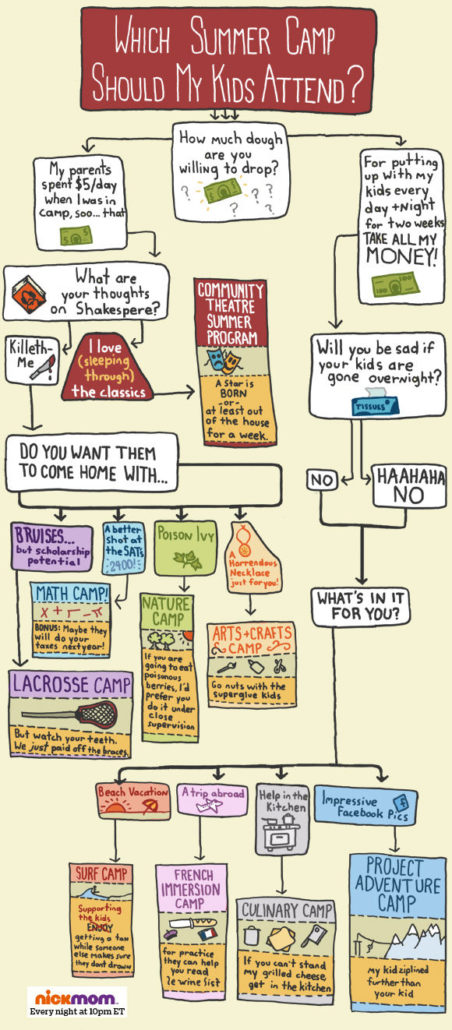
At age 7, I went to day summer camp and by 10 I began going to sleepaway camp. Summer after summer, I yearned for the end of school with excitement, though always with trepidation and a dash of worry as well. But the minute I opened the car door, or the bus pulled up to my camp I was at home, and that feeling never waned. Eight years after my first sleepaway camp experience, I headed off to college and that same mixture of emotions came along for the ride. Drawing on my summer camp experience, I was happy to discover, made the transition easier. Remembering the fun that superseded the fear, the compassion that outranked the chaos, and the learning that leveled the playing field helped more than any college preparatory book I could have read or any “what to know before you go to college” podcast I could have listened to (if those had existed at the time, of course !) What my camp friends and I learned stayed with us, transferred to others, and wove itself into the fabric of our being. As a camper and counselor, camp gave the informal credit I needed to prepare for college. Here at 10 things I learned at camp that helped with the transition.
Learn to accept change
This is probably the most significant lesson from camp that translates to college and then to life. Learning the only things we have control over are our attitudes, outlook, and responses is not an easy feat. Our cabins were decided before we arrived, and sometimes our friends weren’t with us or perhaps new friends left before the summer’s end. Counselors shifted each season and the new ones had very different personalities than our previous leaders. We could find these changes, be angry when they happened, and let it ruin our camp experience, or we could find a way to accept the change, experience the new and learn and grow. In college, friendships, roommates, and even majors change. Dealing with change isn’t easy but it’s fantastically necessary. As we progress in years, the changes we deal with get more difficult so our ability to accept what we can’t change must grow – and camp starts that process
Be flexible and go with the flow
You go to canteen and it’s out of Strawberry Shortcakes that day. The cabin night you were waiting for is rained out, so now your evening activity in indoors in the lodge. These things happen. Summer Camp teaches us to go with the flow. Our tongues turning blue from a new favorite popsicle, wearing pyjamas to evening program instead of wearing layers to the beach, and empathizing with a friend while focusing on having fun with new ones for the duration of camp. That flexibility is necessary in the college stage and beyond. Sometimes our choices are taken away, sometimes the aboard program is unavailable and sometimes we can’t get into that last class needed to complete our major until the following semester. Camp teaches us to let go; that the more relaxed we can be, the easier the shifts will become; and that the more flexible we are, the better it is for our health and well-being.
Embrace and learn from diversity
At some point in every camp experience, we meet people who are different from us. Showing interest in those differences makes us better people and learning from those differences widens our comfort zones and broadens our minds. Cabin and unit mates come from many backgrounds and all bring somethings different to the table. As the number of people with whom we interact increases, the amount of diversity we encounter grows. We meet people on day one of camp, and by day three we feel as if we’ve know them forever. Summer Camp facilitates meeting new people, lessens the fear in that meeting, and manages to make connecting with strangers more amazing than scary. Having that confidence in making new friends makes it much easier to do the same at freshman orientation. At camp and at school, we spend time with people and we learn their desires and struggles, likes and dislikes and upbringing and dream of what’s to come. Camp and college provide an opportunity to make those strangers become fast friends, take notice of and embrace the differences, and learn more about the world around us.
Don’t be afraid to be Yourself
We all have strengthes and weaknesses, successes and failures, likes and dislikes, dreams and aspirations, and thoughts that bring us utter peace. If all of those where the same for our bunkmates, camp would be boring. I loved swimming and arts and crafts. One of my best friends could spend her entire day at the farm, while the other two practically lived at the barn with the horses. There were those who loved the talent show, while others shied away from the spotlight. There were those who were leaders and other who were not. All of us have a safe place to grow at camp. University campuses and courses widen that playing field too, but those of us who went to camp learned at an early age that we could be ourselves and be proud of who we are. It’s those lessons we reach for in the dorm room during moments that are coupled with the fear at we might not be enough.
Everyone gets homesick
Perhaps it happened after you read a letter or e-mail from home. Perhaps is happened after visiting days. Perhaps is happened after a bad dream, or when you fell off a horse, got your first tick, or had that first bellyache at camp. At the one point or another, all of us had twinges of homesickness. But at the camp there is often a friendly shoulder, and ear to lend, or open arms for a hug that lessened the homesickness and reminded us we could get through. Homesickness happens at college, too, but at camp we learned there’s another side, another day, and always someone to help, whether it’s your roommates, a friend, a professor or an advisor. And sometimes we’re even better equipped to handle homesickness in college because we remember what it felt like at camp and how we overcame it. Feeling homesick happens to the most popular kids, the best athlete and everyone in between. Homesickness is real, but it’s manageable. I learned that lesson at camp.
Respect yourself and others
Summer camp provides us freedom we might not be used to while encouraging us to make good choices, take care of ourselves, and use good judgment. These lessons continue after we leave the grounds in August. Summer camp discourages bullying, teaches us to speak up for fellow campers and ourselves, and reminds us that although we’re away from home and school our character still counts and our actions have consequences. College life comes with privileges of freedoms, new people and new attitudes, and many of the same choices as camp. Remembering the advice of camp counselors from our youth who constantly reminded us to respect ourselves stays with us and often pops up in critical moments when we have difficult choices to make.
Share your skills and your stuff
Jill always brought the coolest clothes and stuff to camp. No one knew more about all things agricultural than Erin. Mr Bill could fix everything, and his wife made the best ices in the world (well according to us). Carolyn showed us how to make a one-match fire, and Maryanne introduced us to our favorite crumb cake recipe. Some people shared stuff, some shared knowledge, and other shared experiences and it all mattered. Those who had something to share felt good knowing they were able to help someone else. Those who benefited from the generosity felt a connection, a boost in positivity, and often a desire to continue to pay it forward. College is much the same. Sometimes it’s as simple as sharing a pizza, lending out a sweatshirt, copying class notes for a sick friend, or explaining a statistic problem a 3am to your stressed-out roommate. At the camp we borrowed clothes, lent encouragement and shared our knowledge. It was never about who had or knew the most or the best of anything: it was about those with the biggest hearts, the kindest ears, and the ability to be there. It mattered then, and it will continue to matter throughout college and the years thereafter.
Everyone has something to teach and to learn
Trish the nurse taught me to safely remove a tick. Mr Bill showed me how to chop down a tree. Laura taught us to sing our heart out, Millie taught us to cook, Adrienne showed us how to make our well-worn beaded camp bracelet, and I stayed late studying lifeguarding with Jackie. We all pitched in and we all offered up what we knew. But it was more than just tangible things, Krista taught me to deal with change, campmates taught me the magic of friendship, and hundreds of counselors taught me kindness, courage, resilience and perseverance. College was no different. We learn from our professor, our advisors, our friend, our surroundings, and often locals and strangers. Having an open mind, acknowledging that lessons come in all forms, having willingness to share what we know and showcasing the ability to listen and share. Camp introduced us to these lessons, and for that we are forever grateful.
Don’t be afraid to ask for help
The road from girls’ to boys’ camp was covered by the tree canopy and lined with shrubbery. At night, there were parts of the path where you could barely see the glow of the stars. Whenever we had events at boys’ camp, fear of that dark set in. Erin was always there with a hand to lend. If she walked in the middle of the road, anyone whose arms or hands were intertwined with hers was safe from the brush and the creatures of the night. In college, I never would have gotten through without the help of my science, and math minded friends. When the methods were confusing and laden with frustration, those friends stepped in to lend a hand. Camp taught us to not be afraid to ask for help, whether we needed a hug when we were sad, a boost to reach the top of the rope, a spot with that back-handspring, a buddy for swimming or a friend with whom to walk alone. Later in life, we were filled with the knowledge that asking for help only made us stronger, and we were often prepared to lend a hand when asked.
Face your fears
Nature’s creepy crawlies, their webs in all sorts of knobby corners at camp, and our bathrooms outside. Then there was the swim test on the first day of the season. Summer camps taught us the need to face our fears in order to conquer them, to not get swallowed up by those emotions, and to always offer to help others face their own fears. As our world grows, often so do our fears. College finds us in new spaces, with new people and new experiences. Each time we try to push past that comfort zone, there’s fear. Camp reminds us that those fears (whether failure or spiders) are normal, don’t make us any “less” and are conquerable. Jackie got back on the horse after she was thrown off. Jill got back in a canoe after she busted her foot, and I jumped off the biggest rock I’ve ever seen. We knew the future was full of unknowns, failures were bound to happen, obstacles would most certainly pop up, but we also knew all those things we had to overcome were manageable.
Stacey Ebert is a camper at heart who has spent more than 25 years in the camping and education industries in New York as a teacher, club advisor, counselor and aquatics director. She is a published writer, blogger, event planner, volunteer manager, and educator always in search of joy. She loves travel, spending time outside, and is an avid yogi. She has visited more than 50 of the world’s countries and met her Australian-born husband while on a trip in New-Zealand. Check out her blog at thegiftoftravel.wordpress.com
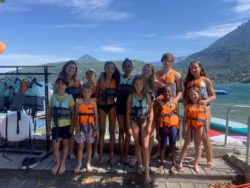 Reason 2: Unique Cultural Exposure
Reason 2: Unique Cultural Exposure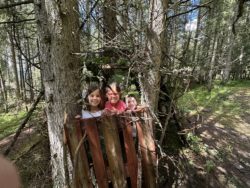 Reason 4: Fun and Safe Environment
Reason 4: Fun and Safe Environment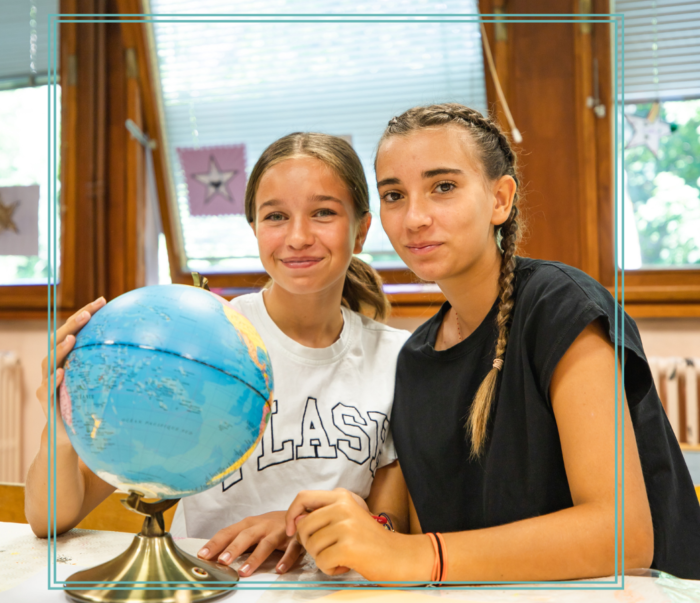
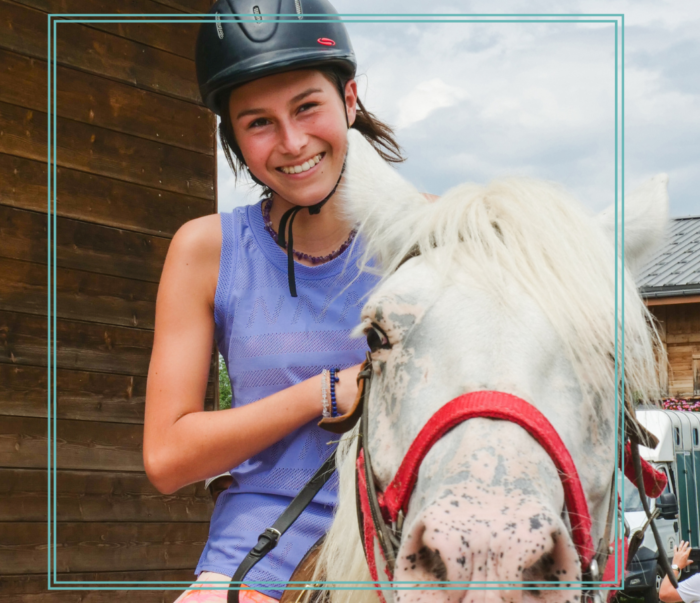
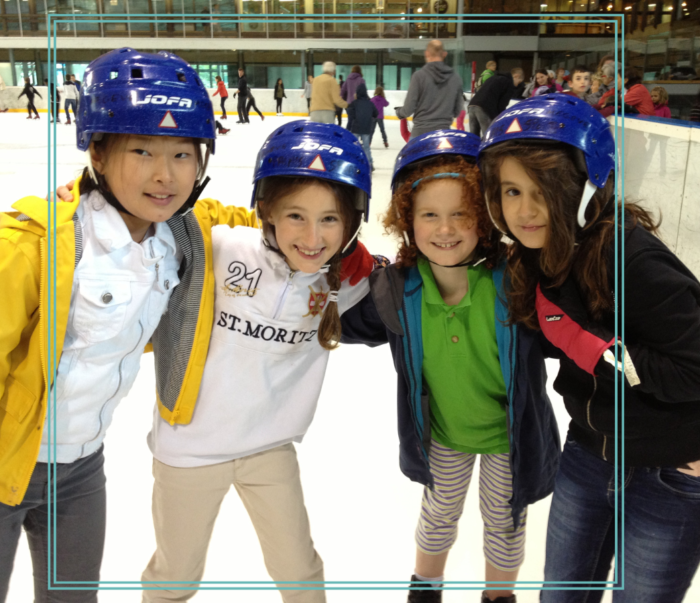
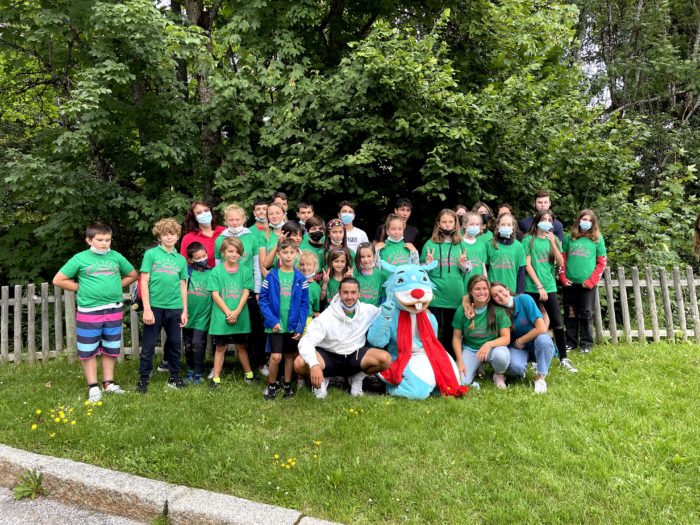
 It is a common question that is not voiced as often as it’s felt. Going to camp for the first time can require a bit of courage, and kids can be anxious about an upcoming camp experience. If a young person were to ask, this is what we’d say:
It is a common question that is not voiced as often as it’s felt. Going to camp for the first time can require a bit of courage, and kids can be anxious about an upcoming camp experience. If a young person were to ask, this is what we’d say: